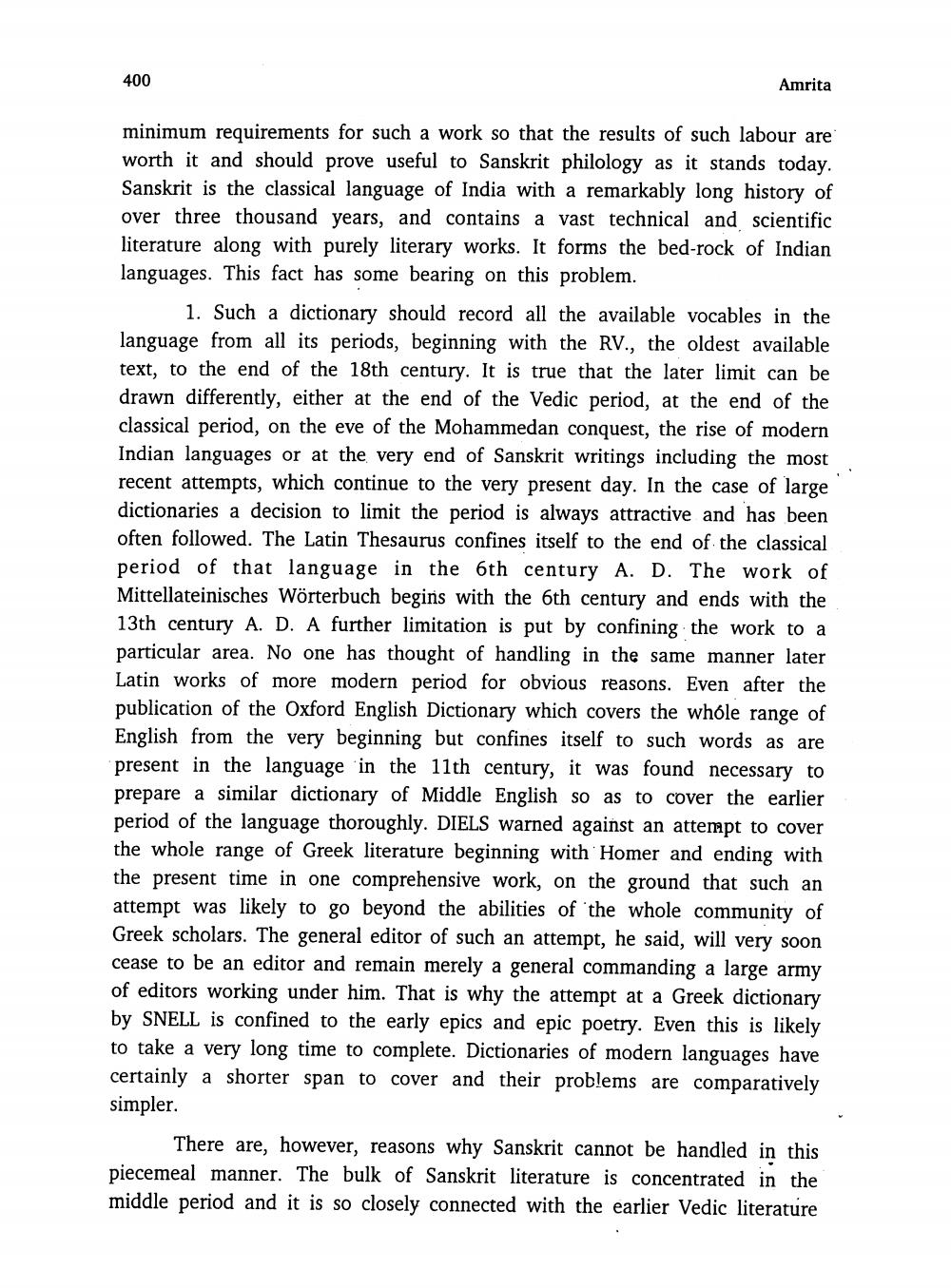________________
400
Amrita
minimum requirements for such a work so that the results of such labour are worth it and should prove useful to Sanskrit philology as it stands today. Sanskrit is the classical language of India with a remarkably long history of over three thousand years, and contains a vast technical and scientific literature along with purely literary works. It forms the bed-rock of Indian languages. This fact has some bearing on this problem.
1. Such a dictionary should record all the available vocables in the language from all its periods, beginning with the RV., the oldest available text, to the end of the 18th century. It is true that the later limit can be drawn differently, either at the end of the Vedic period, at the end of the classical period, on the eve of the Mohammedan conquest, the rise of modern Indian languages or at the very end of Sanskrit writings including the most recent attempts, which continue to the very present day. In the case of large dictionaries a decision to limit the period is always attractive and has been often followed. The Latin Thesaurus confines itself to the end of the classical period of that language in the 6th century A. D. The work of Mittellateinisches Wörterbuch begins with the 6th century and ends with the 13th century A. D. A further limitation is put by confining the work to a particular area. No one has thought of handling in the same manner later Latin works of more modern period for obvious reasons. Even after the publication of the Oxford English Dictionary which covers the whole range of English from the very beginning but confines itself to such words as are present in the language in the 11th century, it was found necessary to prepare a similar dictionary of Middle English so as to cover the earlier period of the language thoroughly. DIELS warned against an attempt to cover the whole range of Greek literature beginning with Homer and ending with the present time in one comprehensive work, on the ground that such an attempt was likely to go beyond the abilities of the whole community of Greek scholars. The general editor of such an attempt, he said, will very soon cease to be an editor and remain merely a general commanding a large army of editors working under him. That is why the attempt at a Greek dictionary by SNELL is confined to the early epics and epic poetry. Even this is likely to take a very long time to complete. Dictionaries of modern languages have certainly a shorter span to cover and their problems are comparatively simpler.
There are, however, reasons why Sanskrit cannot be handled in this piecemeal manner. The bulk of Sanskrit literature is concentrated in the middle period and it is so closely connected with the earlier Vedic literature




